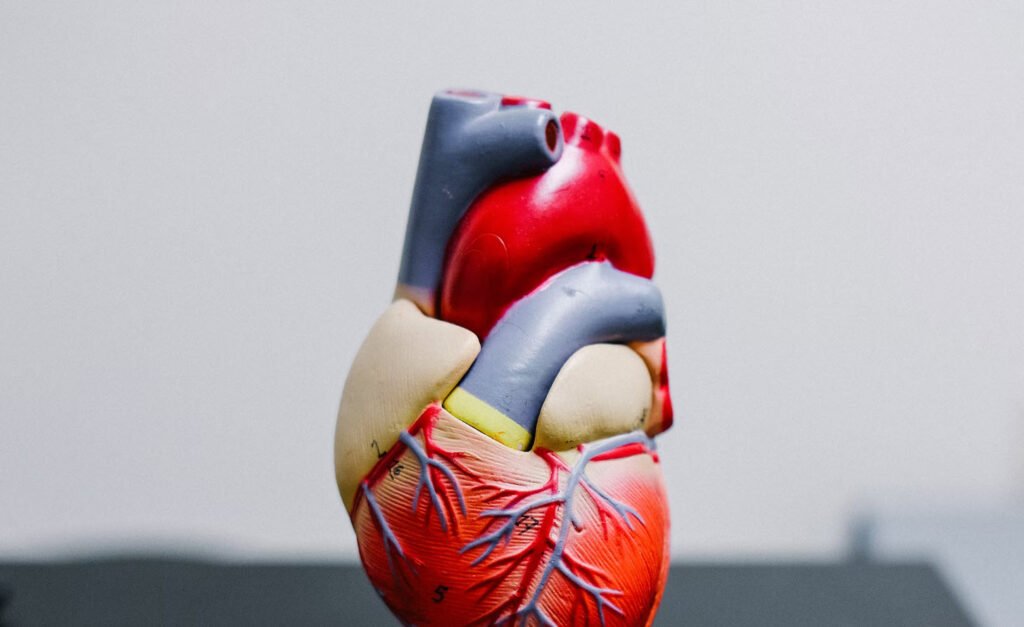
In the realm of heart health, cholesterol often stands out as one of the most talked-about factors. Yet, despite the wealth of information available, misconceptions about cholesterol persist. Health-conscious individuals, confident in their cholesterol knowledge, may be surprised to learn that much of what they believe to be true is actually based on myths.
Understanding these misconceptions is crucial for anyone looking to protect their heart health.
Here are the top five cholesterol myths that need to be debunked.
Myth No. 1: If my total cholesterol and LDL cholesterol are “normal,” I don’t need to worry about heart disease.
This myth is particularly dangerous because it can create a false sense of security. Many people believe that as long as their total cholesterol and low-density lipoprotein (LDL) cholesterol levels are within the normal range, they are not at risk for heart disease. However, this is far from the truth.
Standard cholesterol tests primarily measure total cholesterol, LDL, high-density lipoprotein (HDL), and triglycerides. While these numbers provide useful information, they don’t tell the whole story. For instance, nearly half of all heart attack victims have cholesterol levels that are considered normal based on standard tests. This is because these tests fail to measure other cholesterol abnormalities that can contribute to heart disease, such as small, dense LDL particles, which are more harmful than larger, less dense particles.
Furthermore, other risk factors, such as inflammation, high blood pressure, smoking, diabetes, and family history, also play significant roles in heart disease. Even with normal cholesterol levels, these factors can increase your risk. Therefore, it’s essential to take a comprehensive approach to heart health that goes beyond just monitoring cholesterol levels.
Myth No. 2: If I exercise and eat healthy, I don’t need to worry about heart disease.
While exercise and a healthy diet are crucial for maintaining good health, they are not a guarantee against heart disease. Many people who eat well and exercise regularly still develop heart disease, and this often comes down to genetics.
Genetics play a significant role in determining cholesterol levels and heart disease risk. For example, some people are genetically predisposed to high cholesterol, a condition known as familial hypercholesterolemia. Even with a healthy lifestyle, individuals with this condition can have dangerously high cholesterol levels, putting them at a higher risk of heart disease.
A study involving male twins, one of whom was lean and athletic while the other was heavier and more sedentary, found that both brothers had similar cholesterol responses to high-fat and low-fat diets. This indicates that genetics can override lifestyle factors to some extent. Therefore, even if you exercise and eat well, it’s important to regularly check your cholesterol levels and consult with your doctor about your heart disease risk.
Myth No. 3: Women aren’t as susceptible to heart disease as men.
This is one of the most pervasive and harmful myths about heart disease. The reality is that cardiovascular disease is the leading cause of death among women, even surpassing all forms of cancer combined, including breast cancer.
One reason this myth persists is that men are often diagnosed with heart disease earlier in life, while women tend to develop it later, typically after menopause. However, when women do develop heart disease, it is often more severe and has worse outcomes than in men. High cholesterol is a major risk factor for heart disease in women, and research shows that women tend to have higher cholesterol levels than men starting in their 40s.
Moreover, women are less likely to receive aggressive treatment for heart disease, which can contribute to poorer outcomes. It’s essential for women to take heart disease seriously, monitor their cholesterol levels, and discuss their heart health with their healthcare provider.
Myth No. 4: The routine cholesterol test gives an accurate measure of my LDL cholesterol.
Another common misconception is that the routine cholesterol test provides an accurate measure of LDL cholesterol. In reality, the standard test estimates LDL levels rather than directly measuring them, which can lead to inaccuracies.
The formula used in routine tests to calculate LDL cholesterol assumes that all LDL particles are the same size and density, which is not the case. Some people have smaller, denser LDL particles, which are more likely to contribute to plaque buildup in the arteries and increase the risk of heart disease. However, these small, dense LDL particles may be underestimated by the standard test, leading to a false sense of security.
For a more accurate assessment of LDL cholesterol, a direct measurement or an advanced lipid test, which can identify the size and density of LDL particles, may be necessary. This can help healthcare providers better assess heart disease risk and develop more effective treatment plans.
Myth No. 5: If my good cholesterol (HDL) is high, I am protected against heart disease.
High levels of high-density lipoprotein (HDL) cholesterol, often referred to as “good” cholesterol, are generally considered protective against heart disease. However, this is not always the case.
HDL cholesterol is made up of different subclasses, primarily HDL2 and HDL3. HDL2 is associated with a lower risk of heart disease, while HDL3 may not be as protective and, in some cases, could even be associated with an increased risk of heart disease. Therefore, simply having a high total HDL level does not guarantee protection against heart disease.
In addition, recent research suggests that the function of HDL may be more important than the quantity. For example, HDL’s ability to remove cholesterol from the arteries (a process known as reverse cholesterol transport) is a key factor in its protective role. If HDL is not functioning properly, even high levels may not offer the expected protection.
Conclusion
Understanding cholesterol and its role in heart disease is more complex than simply knowing your numbers. Myths and misconceptions can lead to false assumptions about your heart health and potentially dangerous consequences.
It’s crucial to look beyond the basics, consider other risk factors, and have open discussions with your healthcare provider. By debunking these common cholesterol myths, you can take a more informed and proactive approach to protecting your heart.









This Post Has One Comment